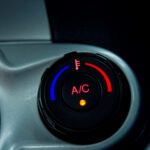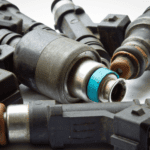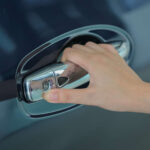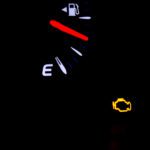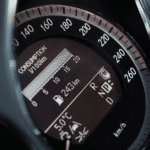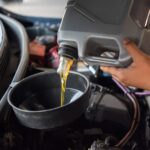In the automotive world, the oxygen sensor, often called the O2 sensor or Lamba sensor, plays the important role of monitoring oxygen levels in exhaust gases. Using this information, the engine control unit (ECU) maintains the ideal air-fuel mixture.
However, when an O2 sensor begins to fail, it can have a profound impact on your vehicle’s overall performance. One of the most noticeable repercussions is a significant drop in gas mileage. In this article, we will explain the relationship between a malfunctioning O2 sensor and poor fuel efficiency, shedding light on how this seemingly small sensor can make a big difference in your wallet at the pump.
What Is an O2 Sensor?
An oxygen (O2) sensor is a component in a vehicle’s exhaust system that monitors the amount of oxygen in the exhaust gases and provides feedback to the engine control unit (ECU). This sensor helps ensure the engine operates at an optimal air-fuel mixture by signaling whether the exhaust gases are rich (too much fuel) or lean (too little fuel). The ECU uses this information to make real-time adjustments to the fuel injection, allowing the engine to run efficiently and minimize emissions, ultimately affecting fuel economy, engine performance, and emissions levels.
All vehicles with a catalytic converter will have at least two O2 sensors. One located before (pre) and another located after (post) the catalytic converter. Both ultimately do the same job; however, they gather information at different stages.
What happens when you have a bad O2 sensor?
When you have a failed O2 sensor, there are usually a couple of things that will happen
- You may notice a change in engine performance.
- A strong smell of fuel.
- Check the engine light illuminated on the dashboard.
- The fuel consumption changes.
Depending on the severity of the bad O2 sensor, you may have some of the above issues at different times.
One last thing to note is that with a bad O2 sensor, there is an increased chance the catalytic converter will fail quickly. This is because of the change in its working conditions; unburnt fuel is forced into the catalytic converter, which will cause unnecessary overheating. Because of this, the catalyst inside will melt, causing a blockage.
Will a Bad O2 Sensor Cause Bad Gas Mileage?
Yes, a bad O2 sensor can cause bad gas mileage. This is because its job is to measure the amount of oxygen in the exhaust gases. It sends this information to the engine control unit, which then adjusts the fuel ratios injected into the engine to keep it running at an optimal air-fuel ratio.
However, with a failing O2 sensor, the information supplied to the ECU will be incorrect. This can result in the ECU altering the fuel load delivered for combustion. This will mean either the engine running too rich (too much fuel) or lean (too little fuel), negatively affecting gas mileage.
What Causes an O2 Sensor to Fail?
There are many reasons for an O2 sensor to fail, most commonly just regular wear and tear; however, here are all of the causes I have found over the years:
- Wear and tear – O2 sensors have a limited lifespan, so that they will deteriorate or corrode over time due to exposure to high temperatures and the harsh chemical environment.
- Contaminants – Certain contaminants in the exhaust gases, such as oil, coolant, and excessive use of fuel treatments, can damage the sensor.
- Carbon Build-up – Carbon deposits on the sensor can insulate it from the exhaust gases, causing it to become less responsive. A Carbon build-up can sometimes be cleaned off, and the sensor will respond again.
- Physical Damage – Physical damage to O2 sensors is uncommon, but debris can impact and damage the sensor’s wiring.
- Overheating – Excessive heat, often caused by rich fuel mixtures or misfires, can overheat the sensor, damaging it.
- Wiring and Connection Issues – Problems with the wiring or connectors that connect the sensor to the vehicle’s electrical system can lead to sensor malfunctions.
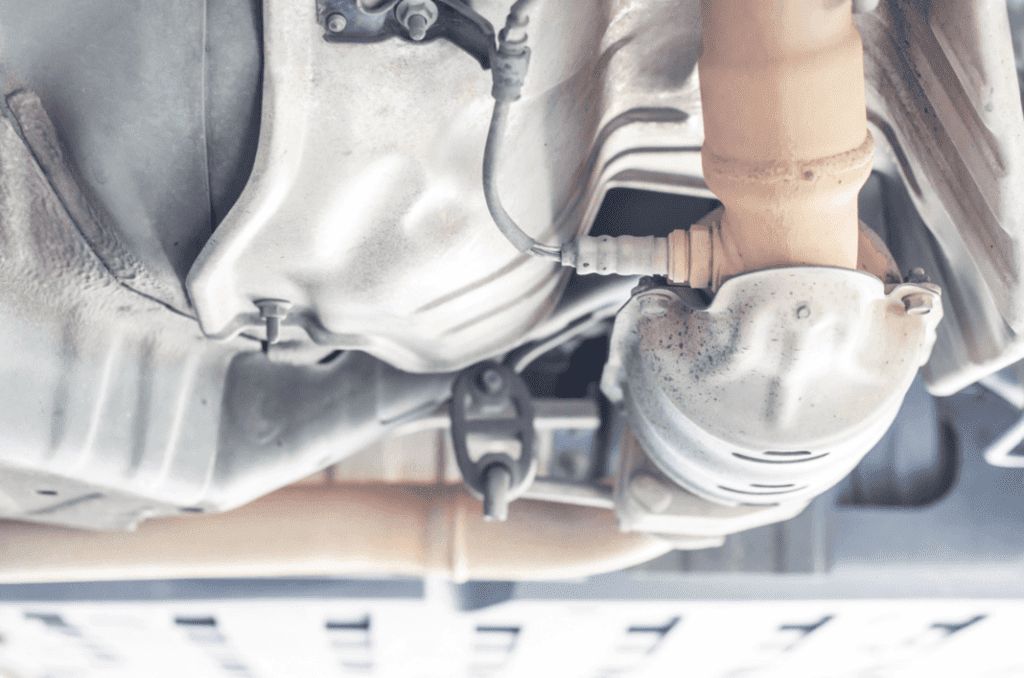
How Long Can You Drive With a Bad O2 Sensor?
If the car starts and runs, you can drive with a bad O2 sensor; however, it’s only a good idea to drive if it’s an emergency. We’ve already touched on this, but let me explain.
When you have a failed O2 sensor, the fuel injected into the engine is either too rich or too lean, as we’ve already covered. This causes a specific problem for catalytic converters. The excess unburnt fuel, or lack of will find its way into the catalytic converter where with the high heat, it can ignite; you may hear some popping or backfiring from the exhaust. This is not a good thing; this means the catalytic converter is overheating, and essentially, the catalyst inside is melting, so rather than just needing an O2 sensor replacement, you will also require the replacement of a catalytic converter, which, as I’m sure you may be aware are not cheap.
That is, of course, just the damage caused to the catalytic converter, not the other parts of the engine that can also get damaged.
For these reasons, I strongly recommend only driving a short journey in an emergency or to and from the place of repair.
Other Causes of Poor Gas Mileage
Let’s just say you suspect your reason for poor gas mileage is an O2 sensor fault, but you don’t know what is causing it. Here is an exhaustive list of the possibilities that I could think of which can affect gas mileage. Many of them won’t necessarily mean anything to you; for example, if this is a sudden decline in MPG, then your driving habits or excessive idling won’t be to blame:
- Driving habits
- Excessive idling
- Inefficient aerodynamics
- Tire pressure
- Vehicle weight
- Fuel quality
- Fuel octane rating
- Inefficient driving conditions
- Weather conditions
- Improperly tuned engine
- Wheel alignment
- Excessive use of accessories
- Worn or dirty spark plugs
- Clogged or dirty air filter
- Malfunctioning mass airflow sensor
- Exhaust system leaks
- EGR (Exhaust Gas Recirculation) valve issues
- Failing catalytic converter
- Transmission problems
- Ignition system issues
- Leaking fuel injectors
- Fuel pump problems
- Brake issues
- Wheel alignment problems
- Suspension issues
- Drivetrain problems
Key Takeaways
If you only take two things away with you from this article, they should be:
- A bad O2 sensor will cause bad gas mileage.
- Ignoring a faulty O2 sensor will result in further problems with other parts of the car.
